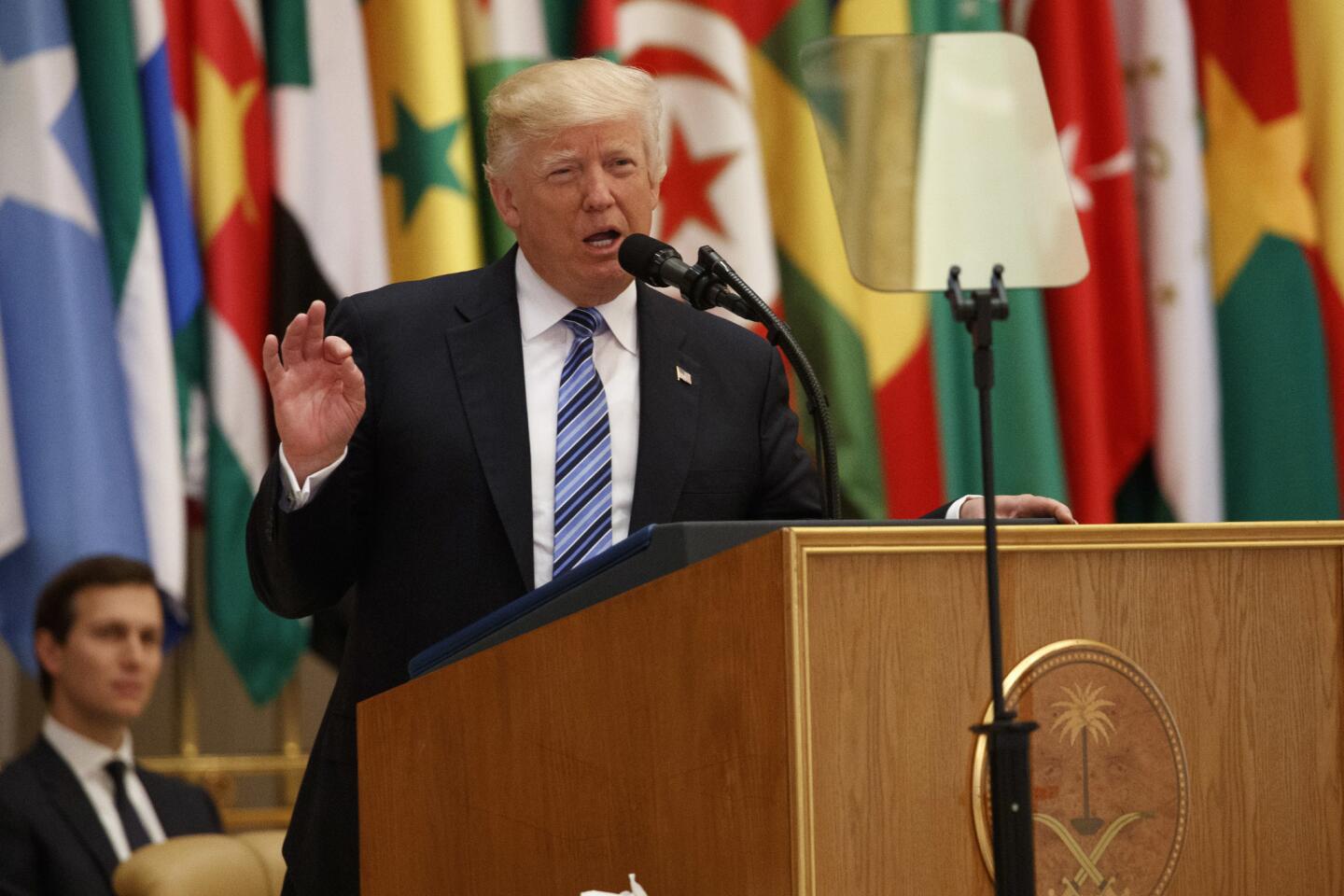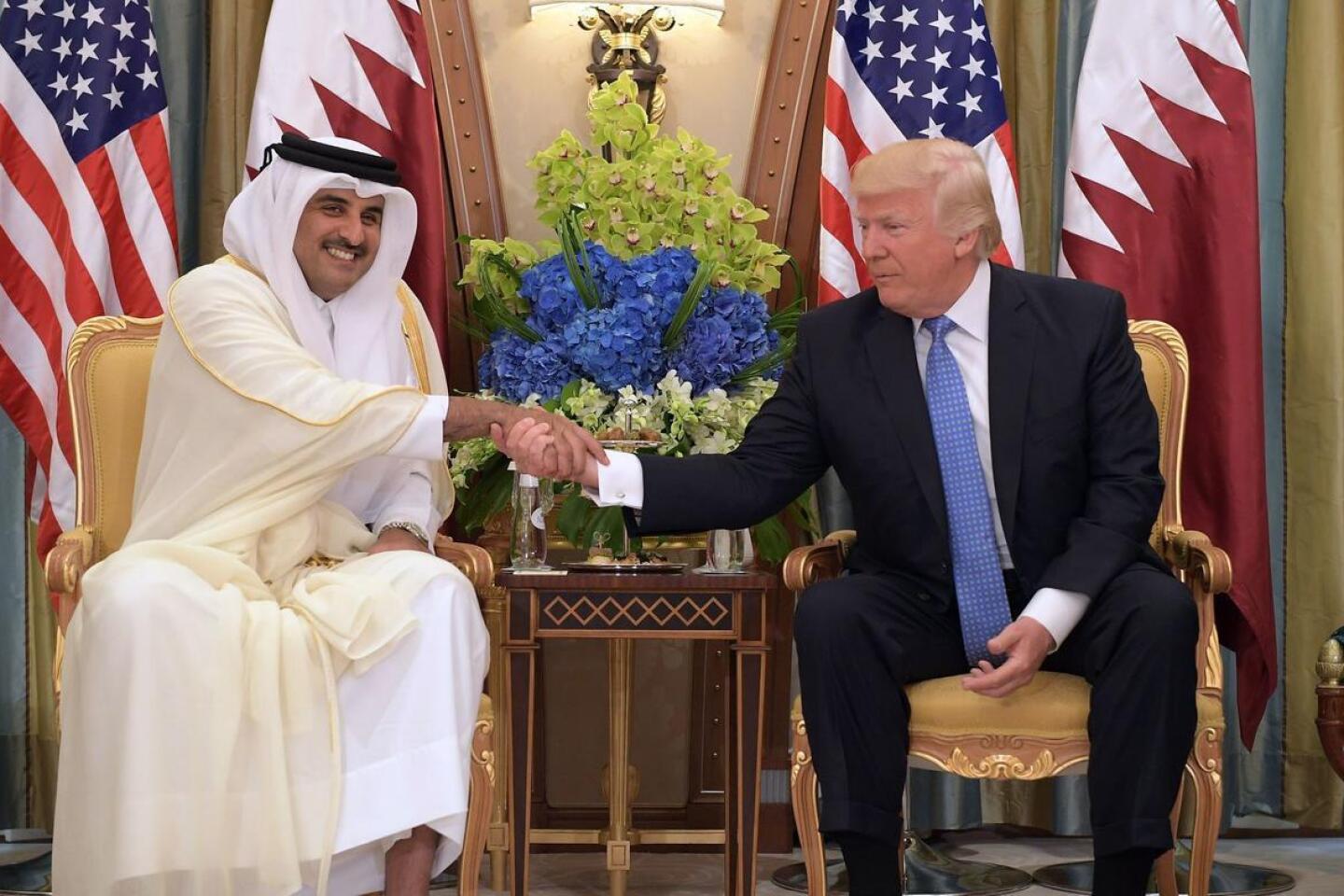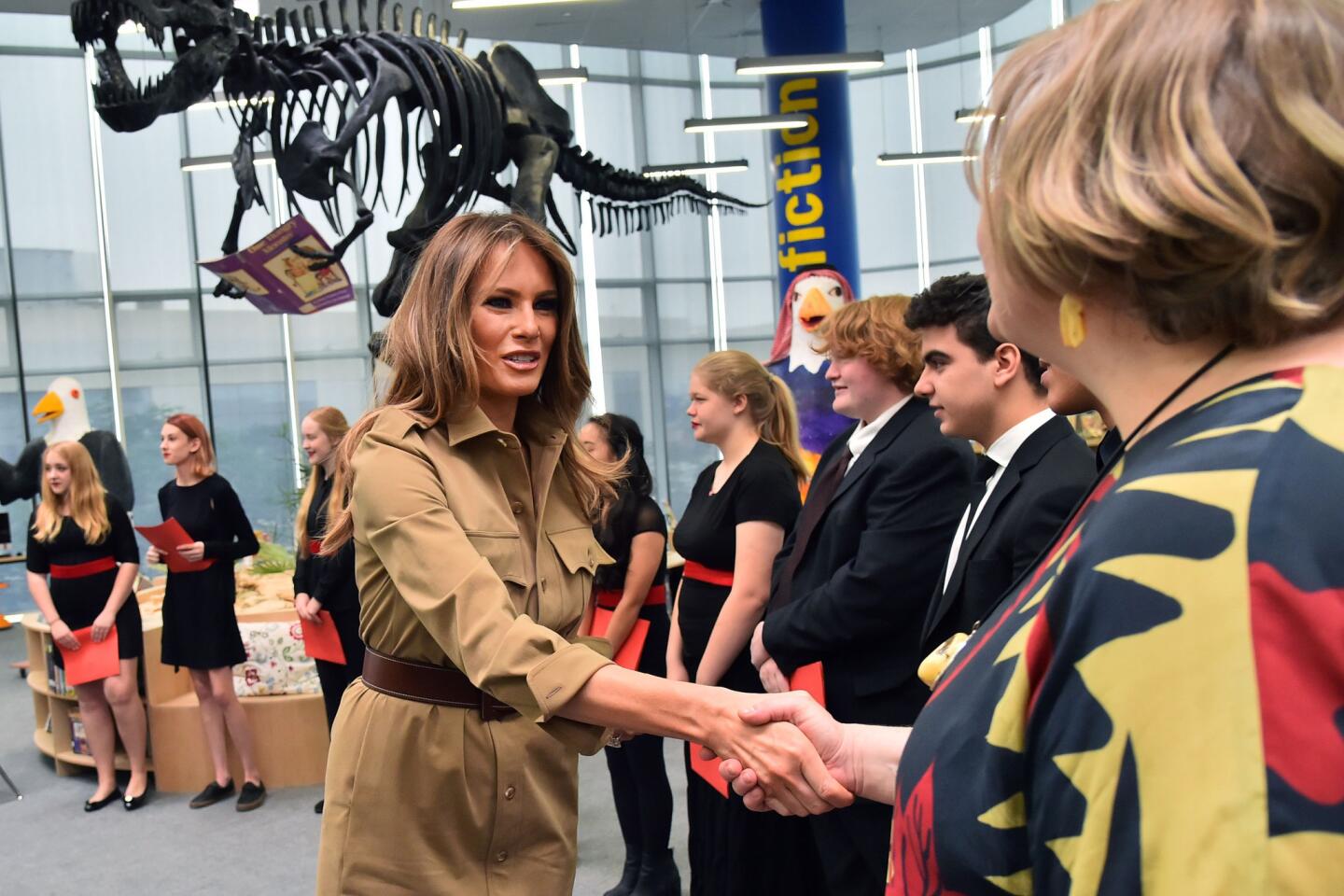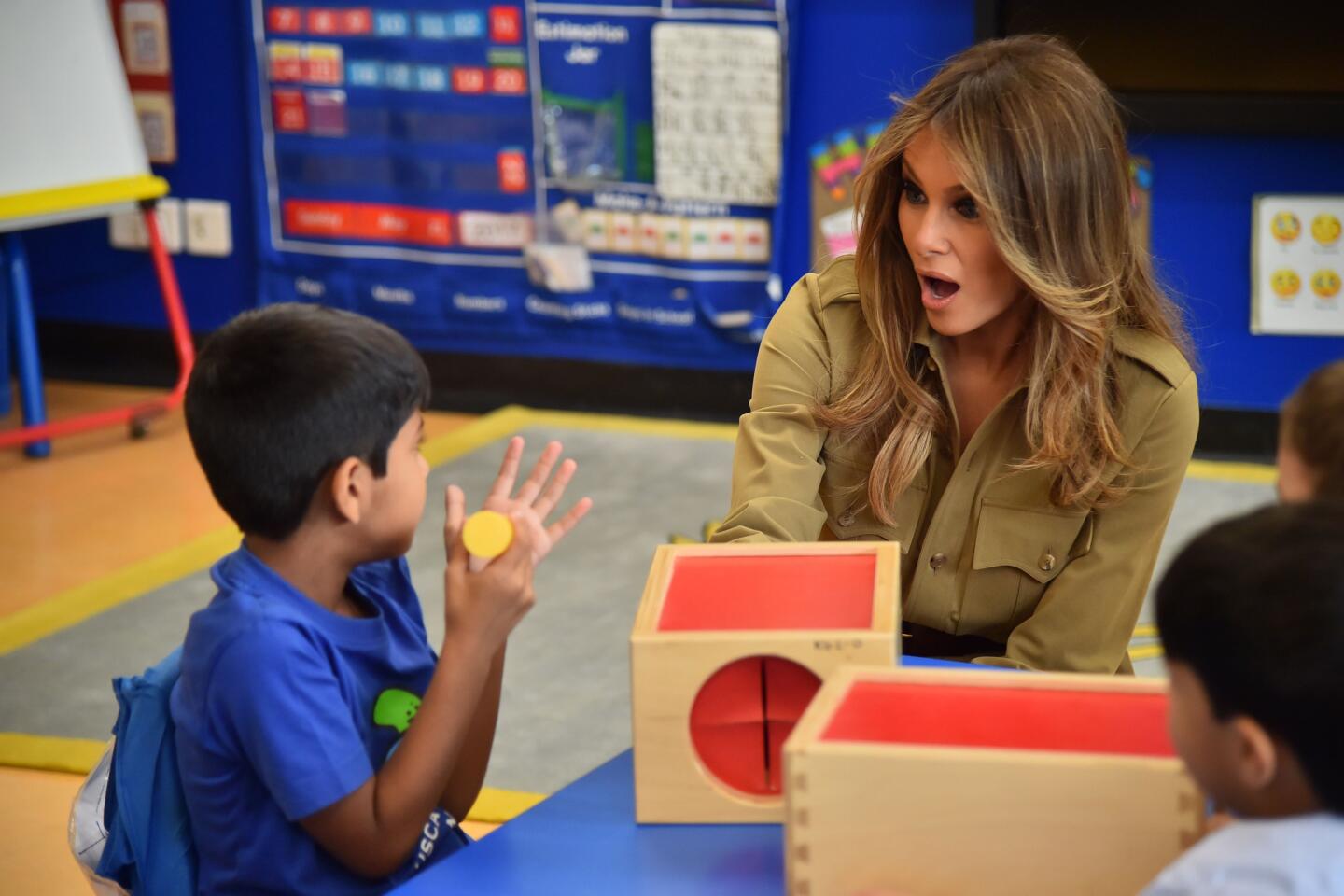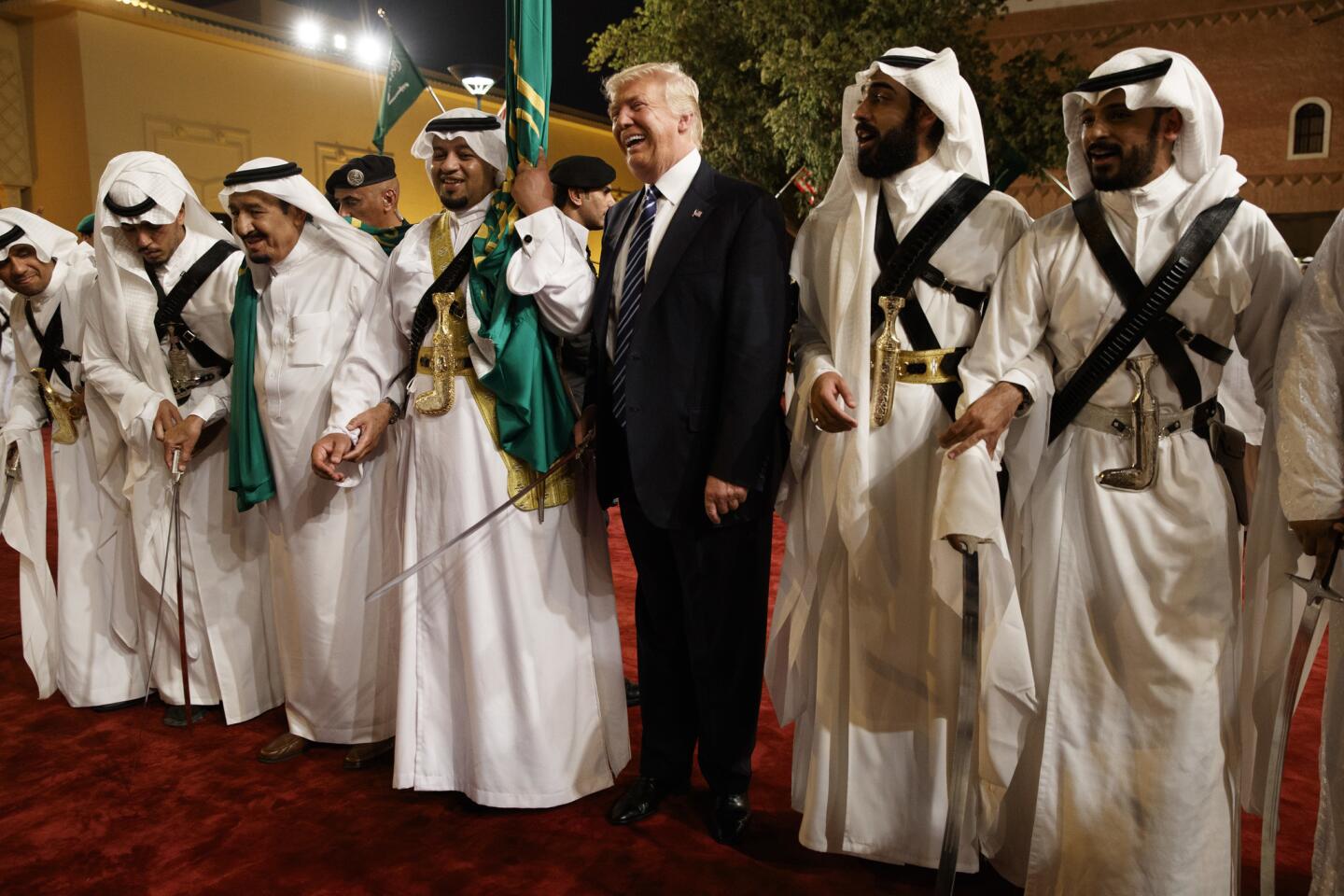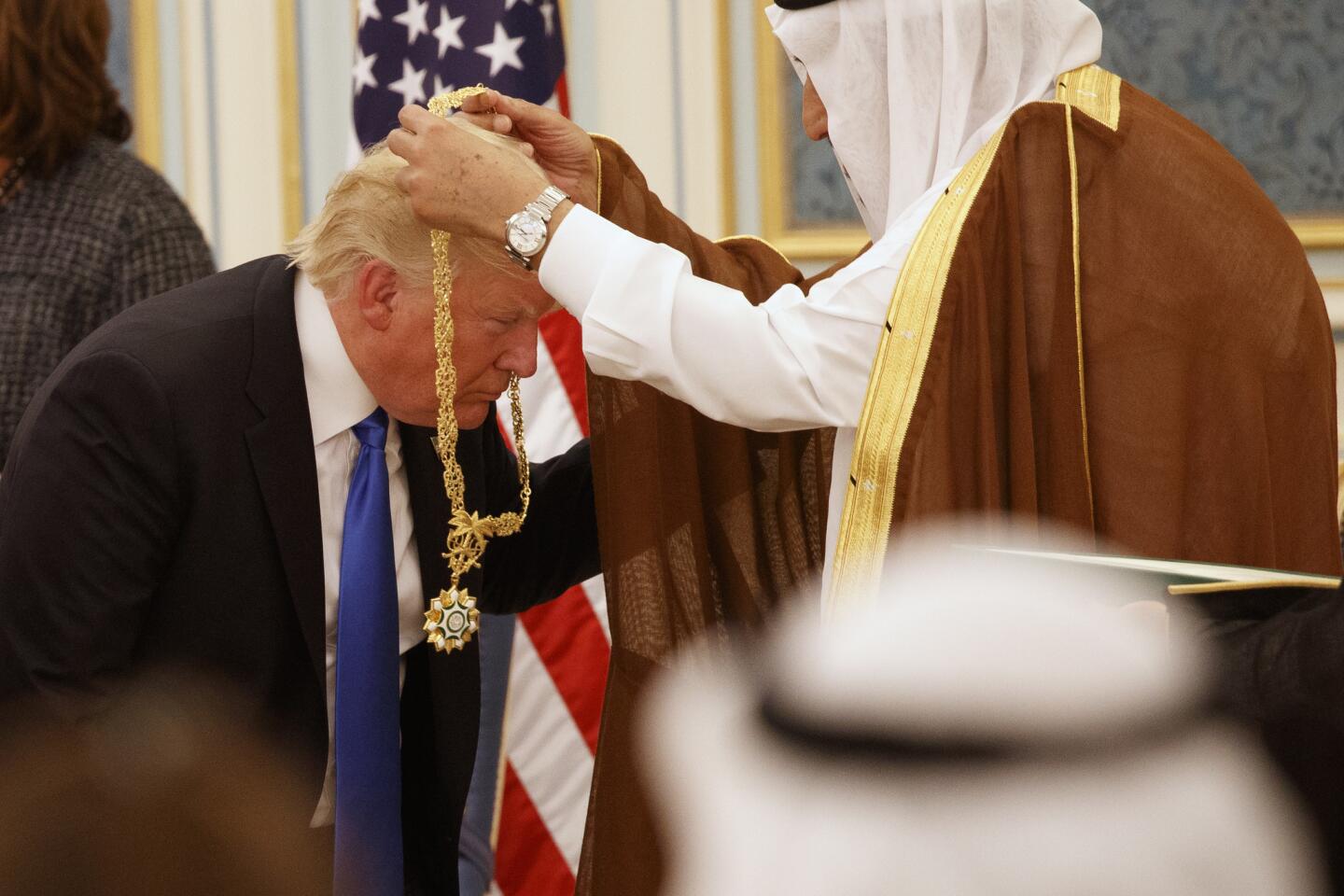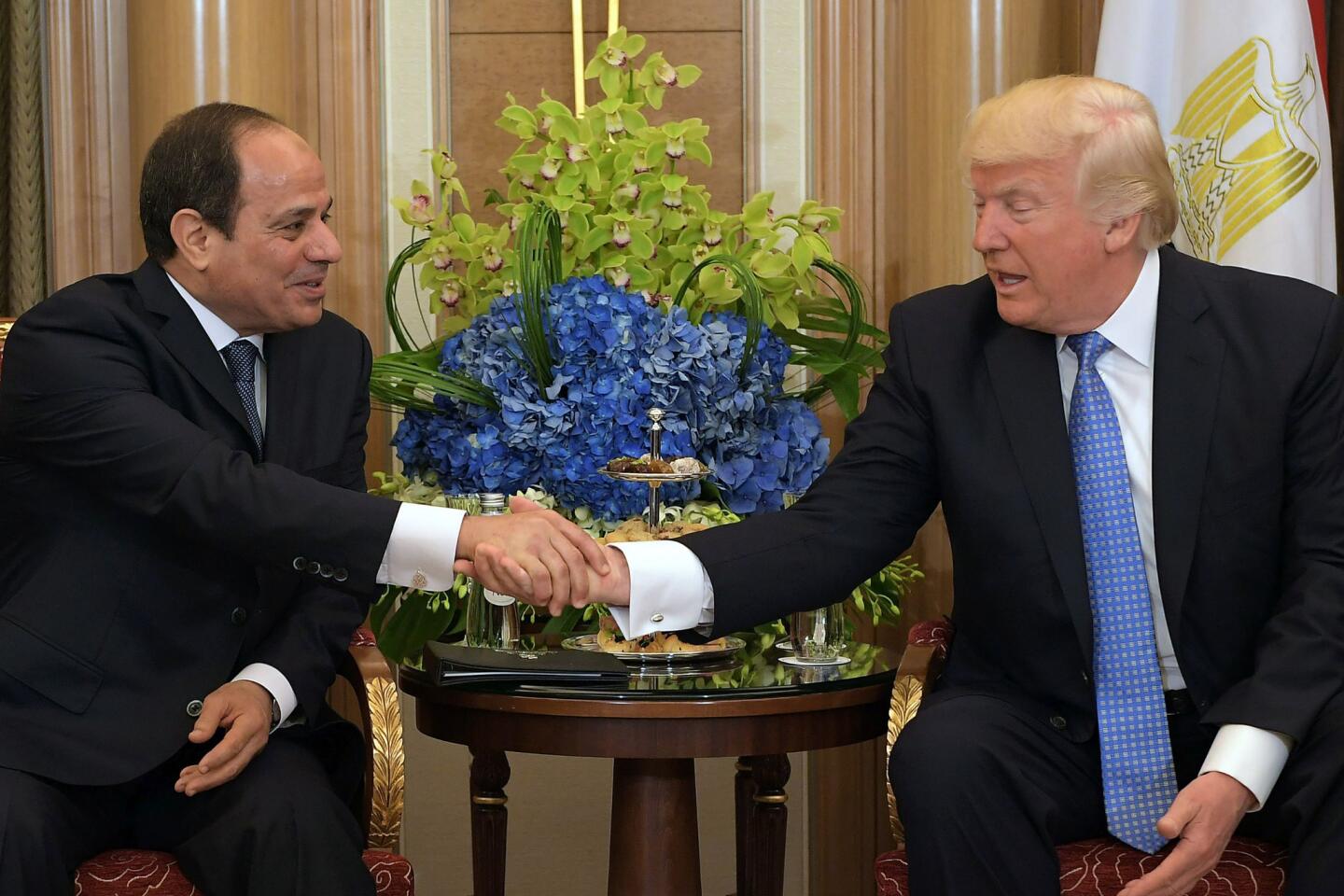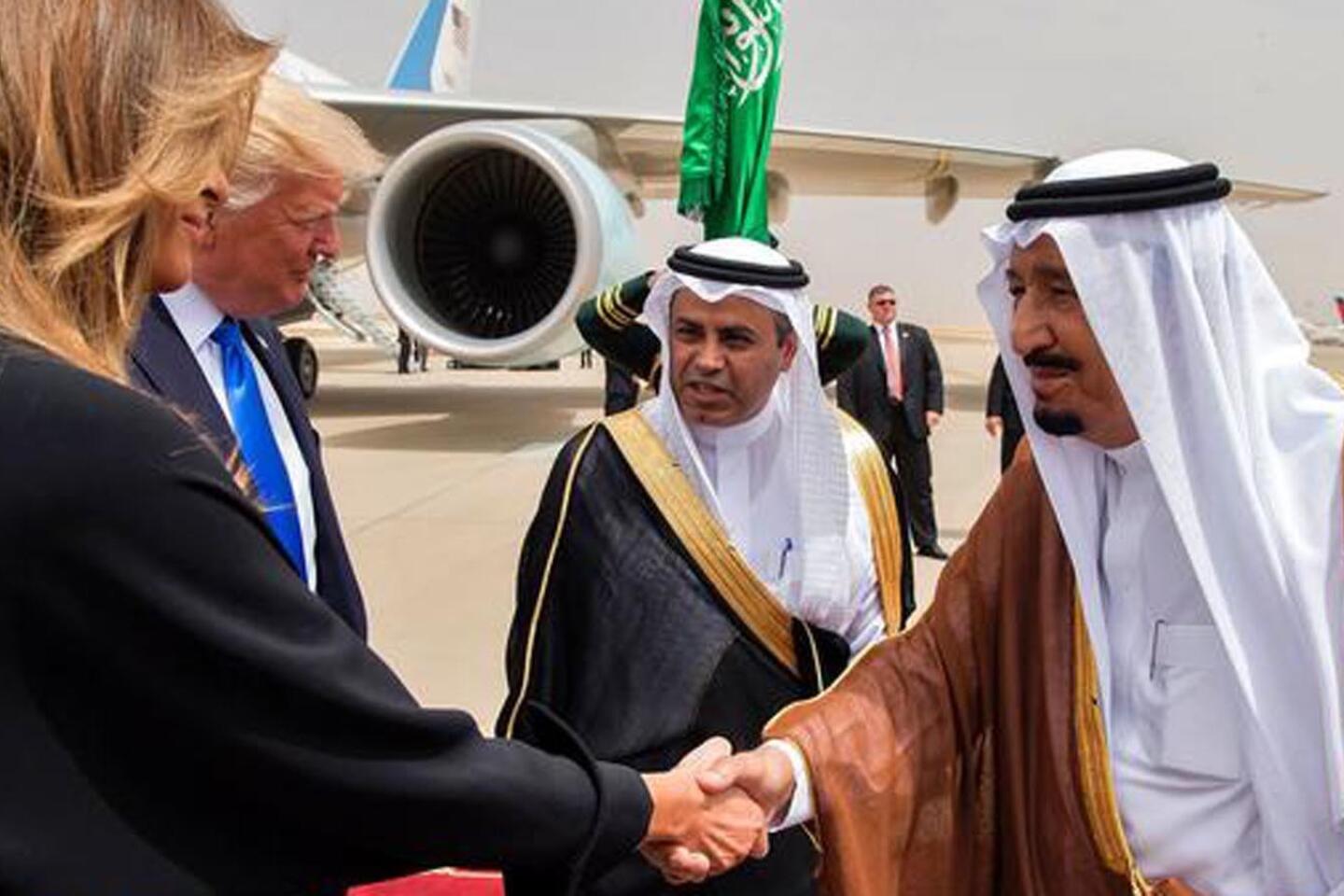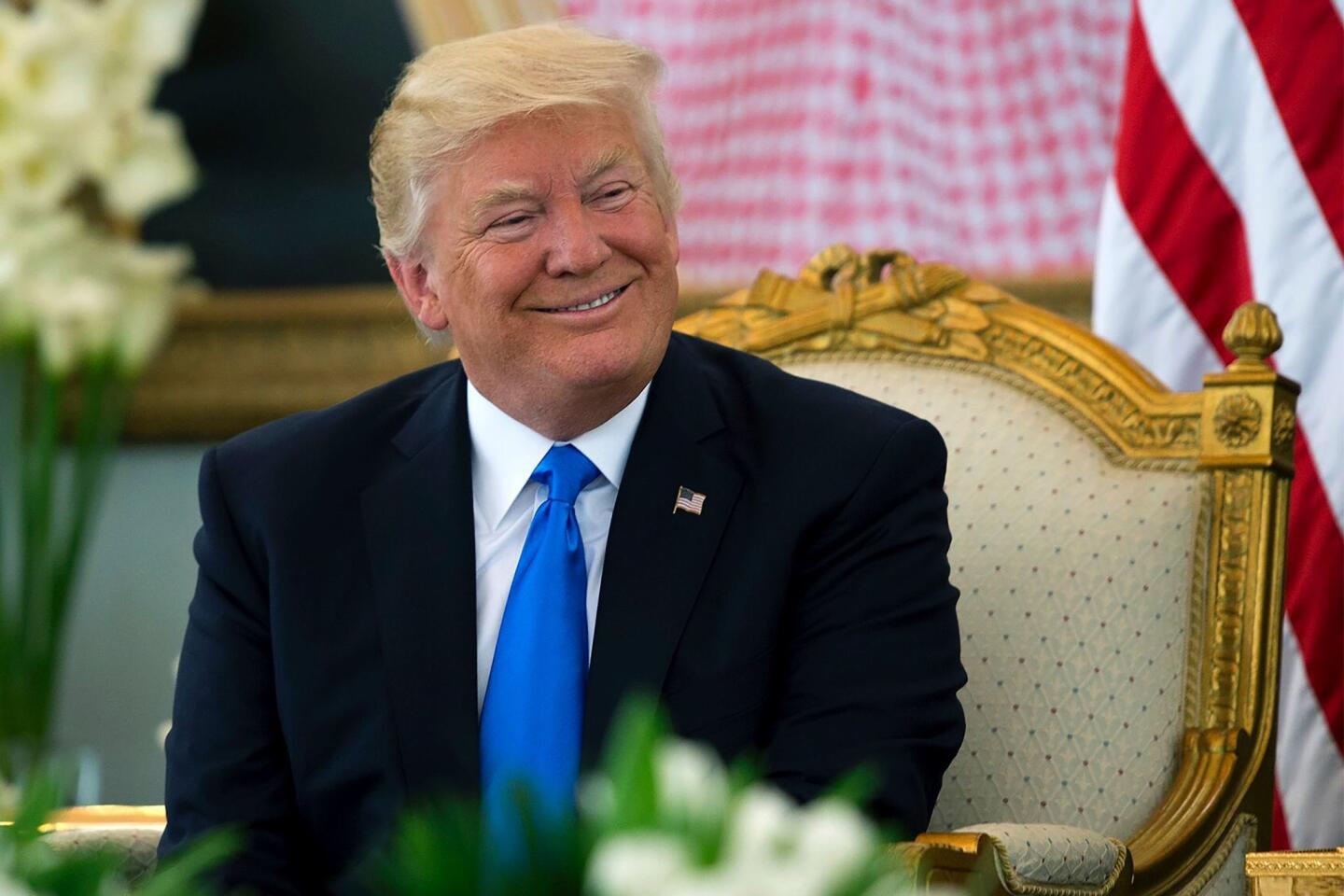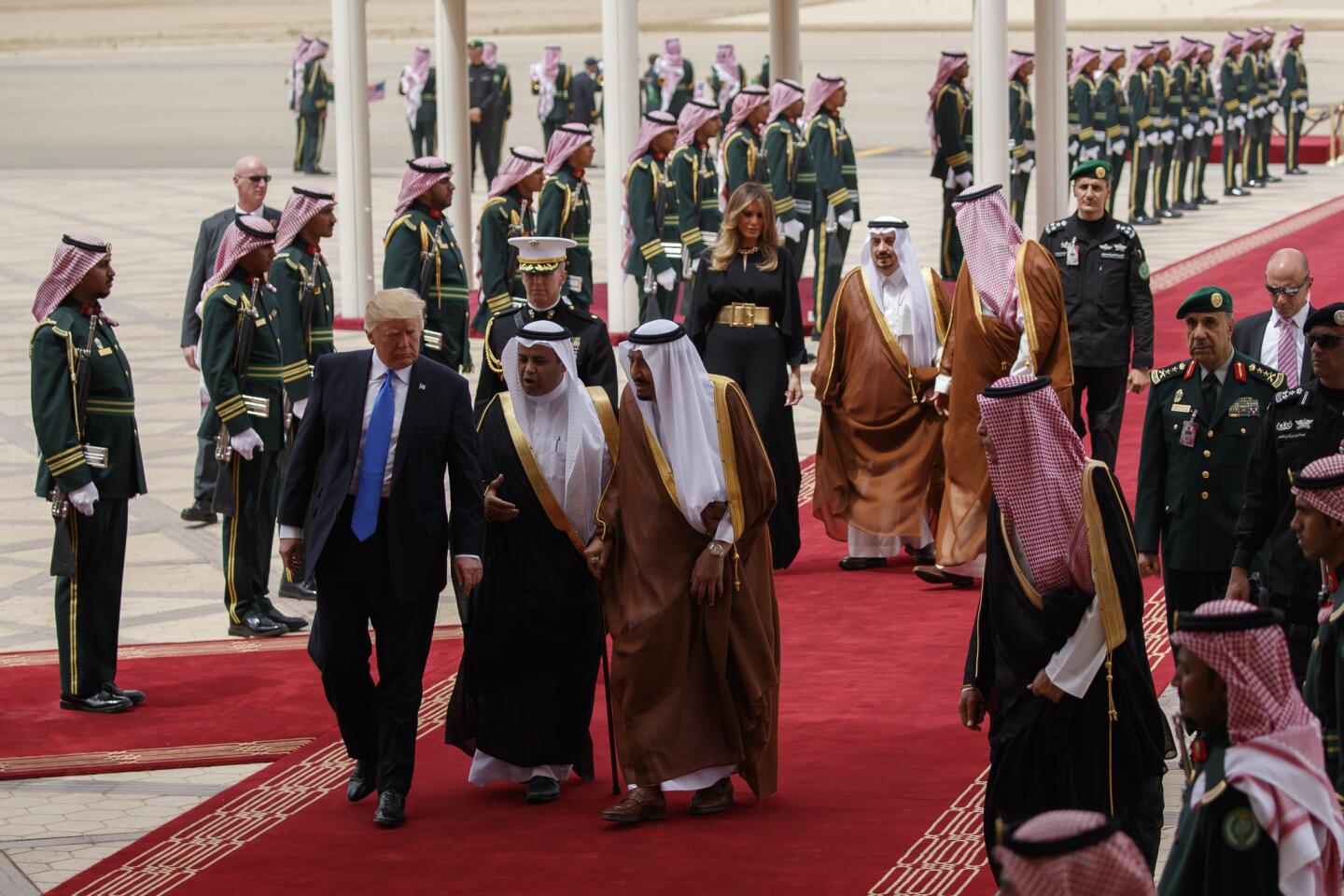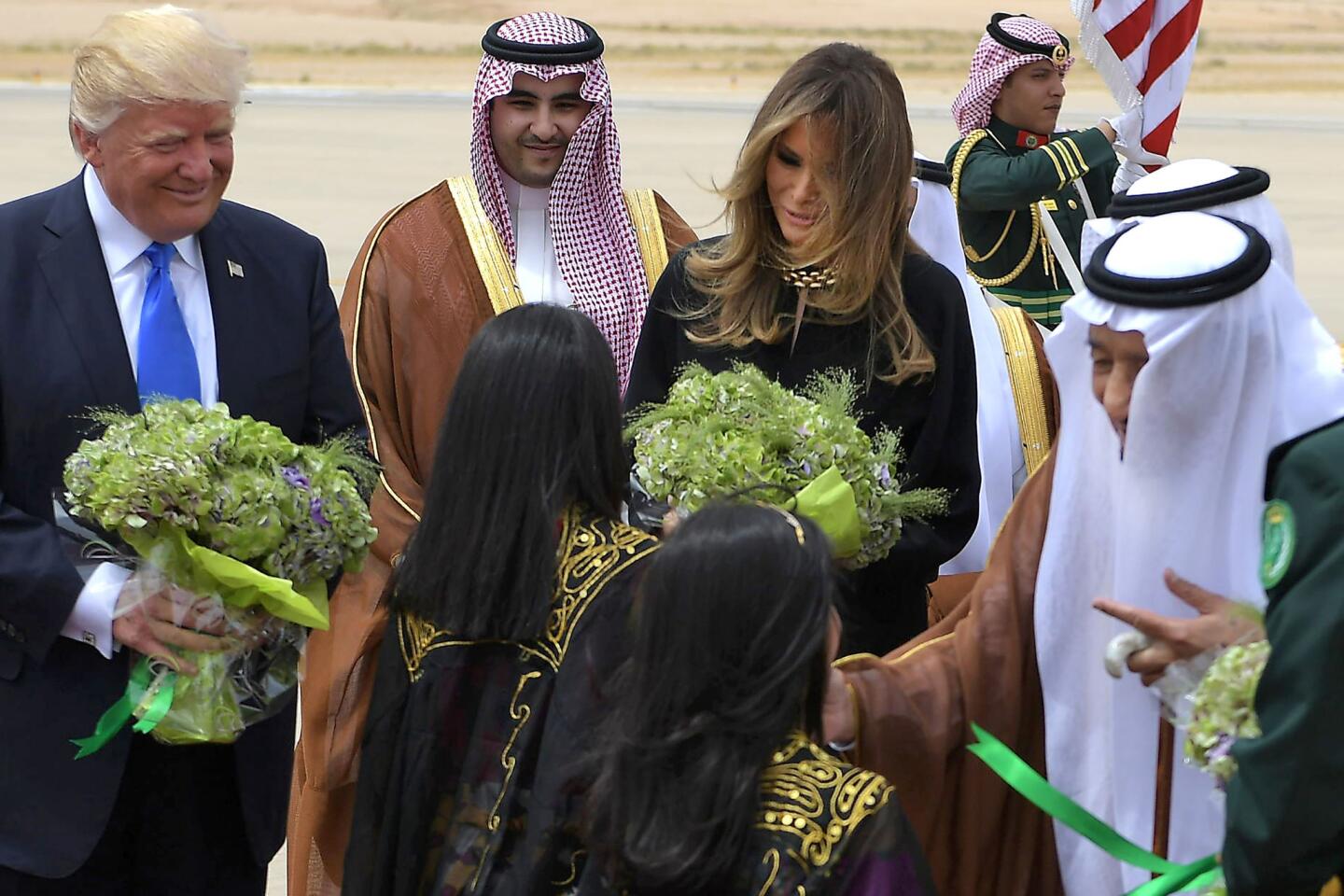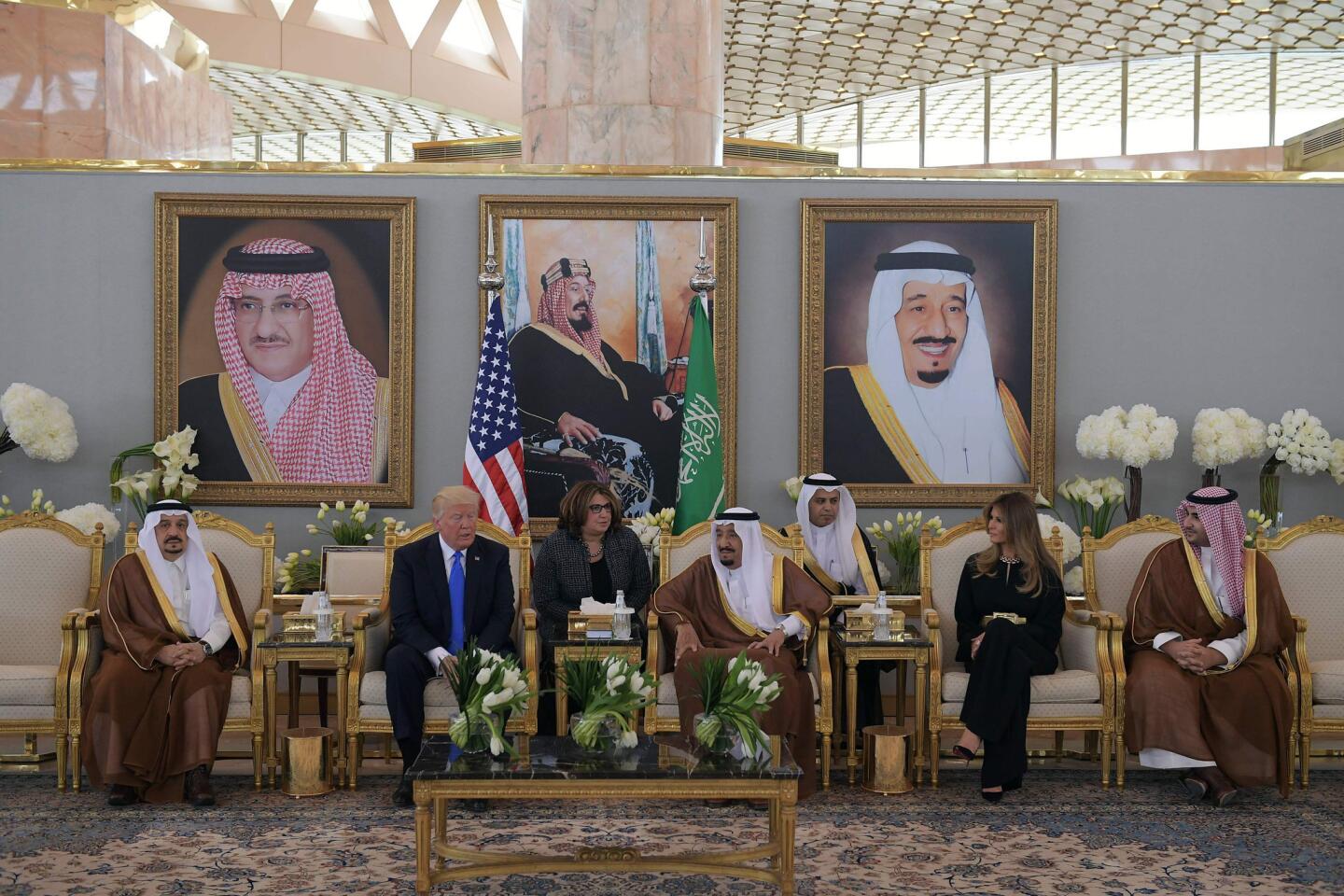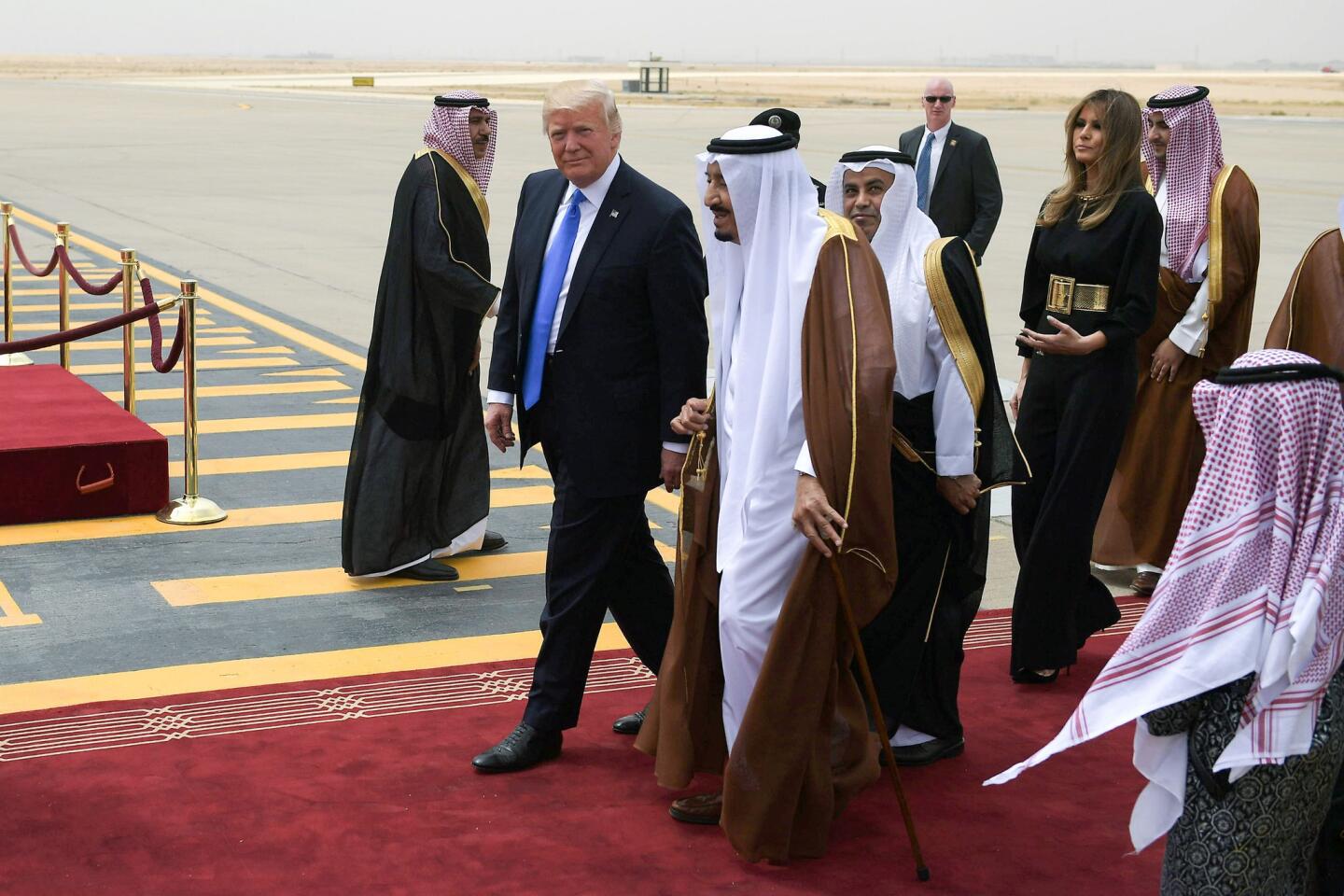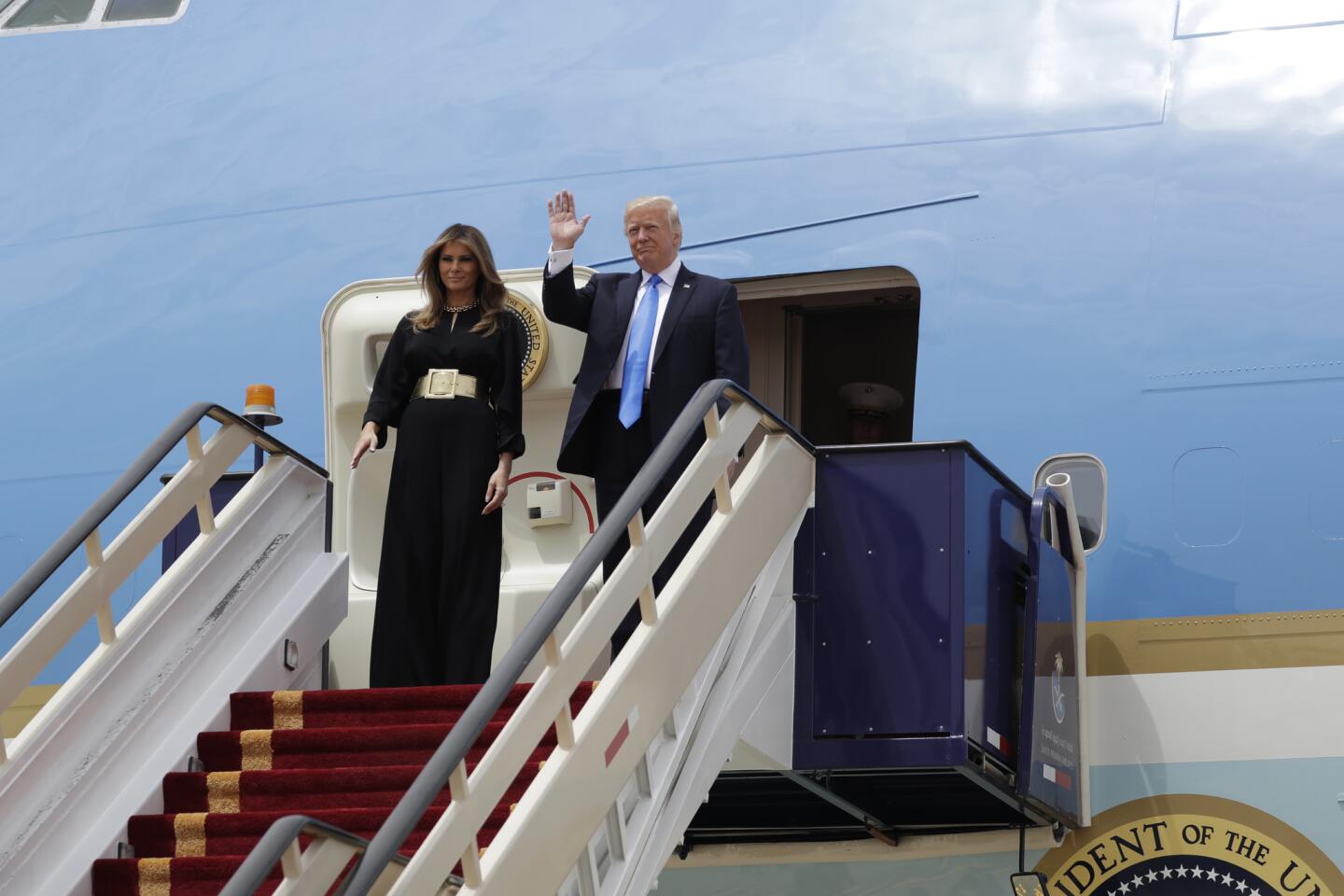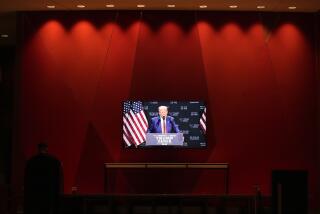Trump’s message to Arab leaders: Do more to fight extremism
Reporting from Riyadh, Saudi Arabia — Citing what he called a “battle between good and evil,” President Trump urged a summit of Arab leaders Sunday to do far more to fight extremism and terrorism, refining his harsh anti-Muslim campaign rhetoric for a joint call to arms in the birthplace of Islam.
In the first major foreign policy address of his presidency, Trump also made clear that his administration would break with the two previous occupants of the White House by not promoting human rights or democratic reforms in a region rife with rigidly controlled societies.
“We are not here to lecture,” he said. “We are not here to tell other people how to live, what to do, who to be, or how to worship.”
Yet his speech was notable for putting the onus on his audience — the leaders of more than 50 Arab and Muslim nations packed in an ornate hall under giant glittering chandeliers — to “take the lead in combating radicalization” and to “take on the burden” of battling terrorism.
Marrying his stated “America first” credo with his vow to eradicate Islamic State and other terrorist networks, Trump said nations in the Middle East “cannot wait for American power to crush this enemy for them” and must plot their own course.
“It’s a choice between two futures, and it’s a choice America cannot make for you,” he said. “Drive them out. Drive them out of your places of worship. Drive them out of your communities. Drive them out of your holy land. And drive them out of this earth.”
He also took a carefully veiled swipe at Saudi Arabia and other Sunni Muslim countries that, at least in the past, turned a blind eye to radical clerics and others who raised money or recruited for extremist groups.
“There can be no coexistence with this violence,” Trump said. “There can be no tolerating it, no accepting it, no excusing it, and no ignoring it.”
He said America seeks “partners, not perfection” to pursue peace and security in the region. Invoking God eight separate times, the president also preached the virtues of religious tolerance for followers of all faiths.
Trump’s aides had portrayed the speech as a rebuttal in some ways to President Obama’s attempts to open bridges to the Islamic world in a famous speech in Cairo in June 2009.
In that speech, Obama called for a “new beginning” in U.S. relations with Muslim nations. Noting that he was raised in Indonesia, the world’s most populous Muslim nation, Obama said he felt the need to fight “negative stereotypes of Islam wherever they appear.”
Trump’s rhetoric Sunday was chiefly notable for its stunning contrast with his regular demonization of Muslims on the campaign trail last year.
Back then, he repeatedly warned “Islam hates us” and called for “a total and complete shutdown of Muslims entering the United States.” As president, he has issued two orders seeking to bar most travel from select Muslim-majority nations; federal judges have blocked both because of what they say appears to be an anti-Muslim motivation.
Trump ended his comments with a harsh denunciation of Iran, a common enemy for most of the Sunni Arab leaders, who listened to his remarks through translation devices.
He did not acknowledge Iran’s peaceful election Friday, which rejected a hard-line Shiite cleric and returned reformist President Hassan Rouhani to office in a landslide. In contrast, most of the Gulf Arab states are monarchies, and few Arab nations hold regular elections.
“Until the Iranian regime is willing to be a partner for peace, all nations of conscience must work together to isolate Iran, deny it funding for terrorism, and pray for the day when the Iranian people have the just and righteous government they deserve,” Trump said.
A senior White House official told reporters later that “an emboldened Iran has united the Arab world in a very unique way.”
“They are working together extremely cooperatively, and also frankly, cooperating incredibly well with Israel,” the official said. Trump will arrive in Israel on Monday morning, his second stop on his trip.
His remarks Sunday to an Arab-Islamic-American summit hosted by the Saudi king were the capstone of a dizzying second day of an eight-day marathon to the Middle East and Europe.
After an elaborate welcome fit for a king on Saturday, he began Sunday with a succession of one-on-one meetings with kings, presidents and emirs from the Gulf region before turning to the two broader gatherings of regional leaders.
Ahead of a meeting of the Gulf Cooperation Council, its six member nations and the U.S. outlined new commitments to move against terrorist financing.
Later Sunday, Trump helped Saudi King Salman open a new center for monitoring and combating global terrorism.
Trump’s speech was drafted by Stephen Miller, a White House senior policy advisor who had helped write Trump’s now-stalled travel ban. The speech later was revised with input from Trump’s son-in-law, Jared Kushner, and his national security advisor, H.R. McMaster.
During the campaign last year, Trump attacked Obama for refusing to describe terrorist threats as “radical Islamic extremism.” Obama and his defenders said the term would anger Muslim nations and feed terrorism propaganda that claims America is at war with Islam.
In his speech Sunday, Trump misstated the term twice. An aide said later the president garbled the language because he was “just an exhausted guy.”
It didn’t seem to matter. At least outwardly, key regional leaders were eager to praise Trump for his leadership and in several cases invite him to visit their countries.
The emir of Kuwait called the president “Brother Trump,” and said he hoped to welcome him one day to the tiny country that a U.S.-led coalition liberated from Iraq in the 1991 Gulf War.
Egyptian President Abdel Fattah Sisi likewise expressed hope that Trump would visit his country — an invitation Trump seemed more eager to accept — while praising the president as “a unique personality who is capable of the impossible.”
“I agree,” Trump responded.
Meeting with the emir of Qatar, Trump said they would discuss “the purchase of lots of beautiful military equipment, because nobody makes it like the United States.”
“Bravo President Trump,” tweeted Anwar Gargash, the United Arab Emirates’ foreign minister, who said the speech defined an “approach toward extremism and terrorism with candid respect and friendship.”
“America’s role reaffirmed,” he wrote in another tweet.
But many Muslims, especially those outside the Gulf states, were less enthusiastic.
The Palestinian group Hamas, which holds sway over the Gaza Strip, condemned Trump’s words as a “slander against the reputation of the resistance of the [Palestinian] people.”
In his address, Trump had lumped Hamas along with Islamic State and Al Qaeda as terrorist groups.
American Muslim groups also reacted with caution, applauding Trump’s conciliatory tone, but skeptical of his intentions.
“One speech cannot outweigh years of anti-Muslim rhetoric and policy proposals — including an attempt to enact a Muslim ban by executive order, which his administration continues to defend in court,” said Nihad Awad, executive director of the Council on American-Islamic Relations. “New policies and concrete actions — not mere rhetoric — are what is needed to reset relations with the Muslim world.”
For more White House coverage, follow @mikememoli on Twitter.
Staff writer Brian Bennett contributed to this report.
ALSO
A tale of two princes: A king’s son and a president’s son-in-law drive Trump’s visit
Leaving his troubles at home, Trump gets a royal welcome in Saudi Arabia
To Saudis, President Trump has become ‘Abu Ivanka’
Get live updates on our Essential Washington news feed
UPDATES:
3:35 p.m.: This article has been updated with additional details.
9:25 a.m.: This article has been updated with additional quotes and background.
8:25 a.m.: This story has been updated with Trump’s speech.
This article was first published at 6 a.m.
More to Read
Get the L.A. Times Politics newsletter
Deeply reported insights into legislation, politics and policy from Sacramento, Washington and beyond. In your inbox three times per week.
You may occasionally receive promotional content from the Los Angeles Times.
